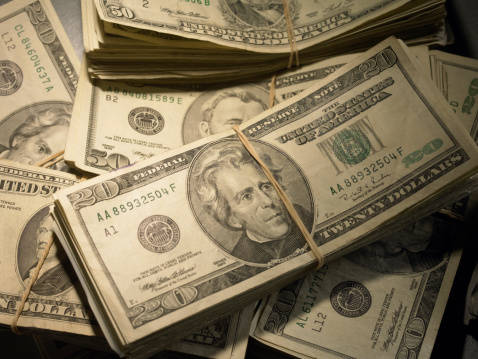The Alaska Senate’s plan to cut the state subsidy for oil and gas drilling could cost Alaska billions of dollars.
That’s the conclusion of the Alaska Department of Revenue, which analyzed the long-term effects of House Bill 111, which has been redrafted by the Senate’s resources committee. On Thursday morning, the Senate Finance Committee heard a presentation from the Department of Revenue; that presentation is expected to continue at 9 a.m. today.
“We are getting rid of the cash liability, absolutely, but we’re pushing it into the future plus interest,” said Ken Alper, the director of the department’s tax division, following Thursday’s presentation.
HB 111 is the brainchild of the coalition that runs the Alaska House of Representatives. As passed by the House, it would end the state’s policy of offering cash subsidies when companies lose money on the North Slope.
Ordinarily, companies lose money when they’re drilling wells but haven’t yet started production. The state’s original idea was that companies would be encouraged to drill in Alaska, if the state offered an incentive.
When oil prices plunged in the middle of this decade, the state discovered that if prices dropped far enough and fast enough, even big North Slope oil producers could rack up losses eligible for these credits.
Now, the state owes more than $700 million in credit payments, a figure expected to balloon to more than $1 billion next year.
The House introduced HB 111 to modify that system and help the state’s multibillion-dollar deficit. Members of the House Majority believe in those modifications so strongly that they’ve made them a pillar of their four-part deficit fix. Without those modifications, they say they’re unwilling to negotiate other parts of a fix.
The Senate, meanwhile, is concerned that if the state stops encouraging drilling, Alaska’s economy will suffer. The oil and gas industry remains a huge employer, even after thousands of layoffs in the past two years.
When HB 111 moved to the Senate after passing the House, members of the Senate Resources Committee rewrote it. That committee also eliminated cash credits, but it allowed companies to roll over their losses to future years. A company that spends billions drilling a well could deduct those costs from its state taxes when the well starts producing oil.
According to the Department of Revenue analysis, the Senate approach has consequences. Both the House and Senate versions of HB 111 save the state money in the short term. The House version saves more, but the big difference is in the long term. By 2026, at present rates of development, the state will owe companies some $640 million in subsidy payments under the House plan. Under the Senate plan, that figure is almost $1.8 billion.
If major North Slope oil discoveries are developed in the meantime, that amount could be higher, Alper said.
At this point, nothing is certain. The bill produced by the Senate Resources Committee will almost certainly be modified by the Senate Finance Committee before advancing to a vote of the full Senate.
If the Senate approves of the resulting bill, HB 111 will return to the House, which is likely to reject it in favor of its own version. That disagreement will set up a process whereby HB 111 will end up on the compromise table alongside other pieces of any deficit fix.
• Contact reporter James Brooks at james.k.brooks@juneauempire.com or call 419-7732.

